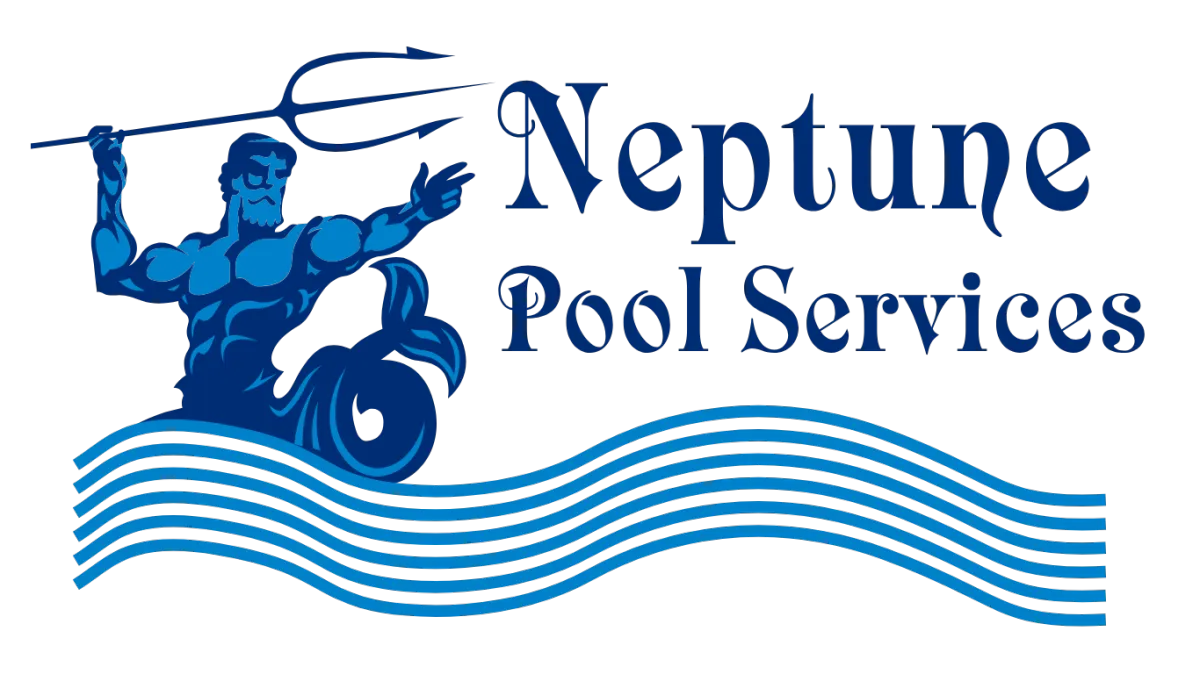


Your Pool, Our Passion
Here at Neptune Pool Services, we make every splash a clean, safe, and unforgettable experience.
Of all the pool companies in the Venice area, our loyal customers choose Neptune Pool Services and Pressure Washing for many reasons. Most importantly, because we always put our customers first. Our responsive staff members go the extra mile to schedule in our clients’ requests quickly, and we treat our customers’ homes with the utmost respect. If there is ever an issue with our services, we encourage our customers to get back in touch with us and we’ll find an agreeable resolution.
Neptune Pool Services and Pressure Washing is a family-owned and family-operated business. We opened our doors back in 2007. Our founder, Denise, and her two sons—Jeremy and Aaron—run Neptune with a hands-on, family-oriented approach. We pride ourselves on the consistent quality of our services because our reputation is important to us. It’s our mission to thoroughly clean and beautify your property so that you can enjoy a more relaxing lifestyle.
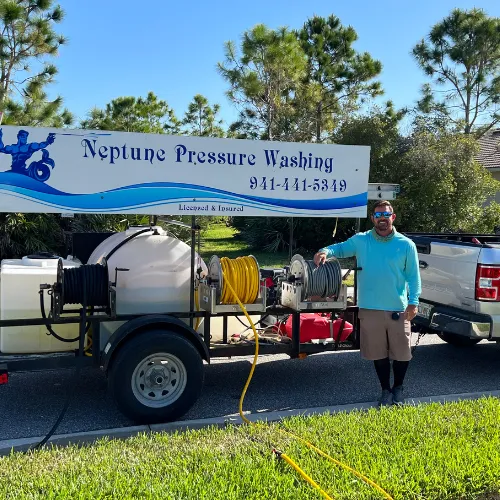
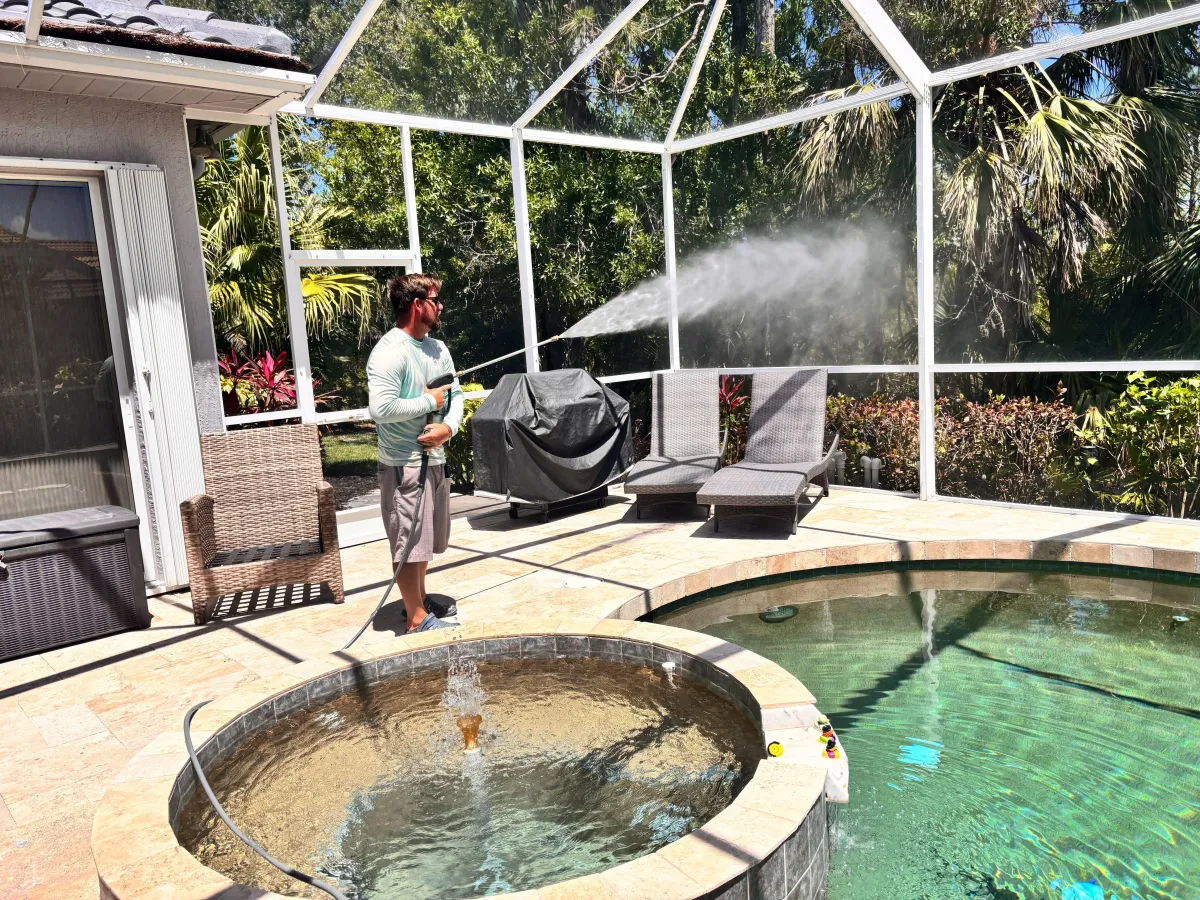
A Journey Built on Trust and Care
From humble beginnings to becoming your go-to pool care experts.
In Florida—the most humid state in the U.S.—having a pool isn’t just a luxury, it’s a way to stay cool and relaxed year-round. But pool ownership comes with ongoing maintenance demands. That’s where Neptune Pool Services and Pressure Washing comes in. As a trusted, family-owned business proudly serving the Gulf Coast since 2007, we provide expert care that makes pool upkeep easy. If you’re searching for pool cleaning services near me that deliver peace of mind, Neptune offers exactly that. We’re dedicated to giving Sarasota County homeowners a worry-free, top-tier experience, every time.
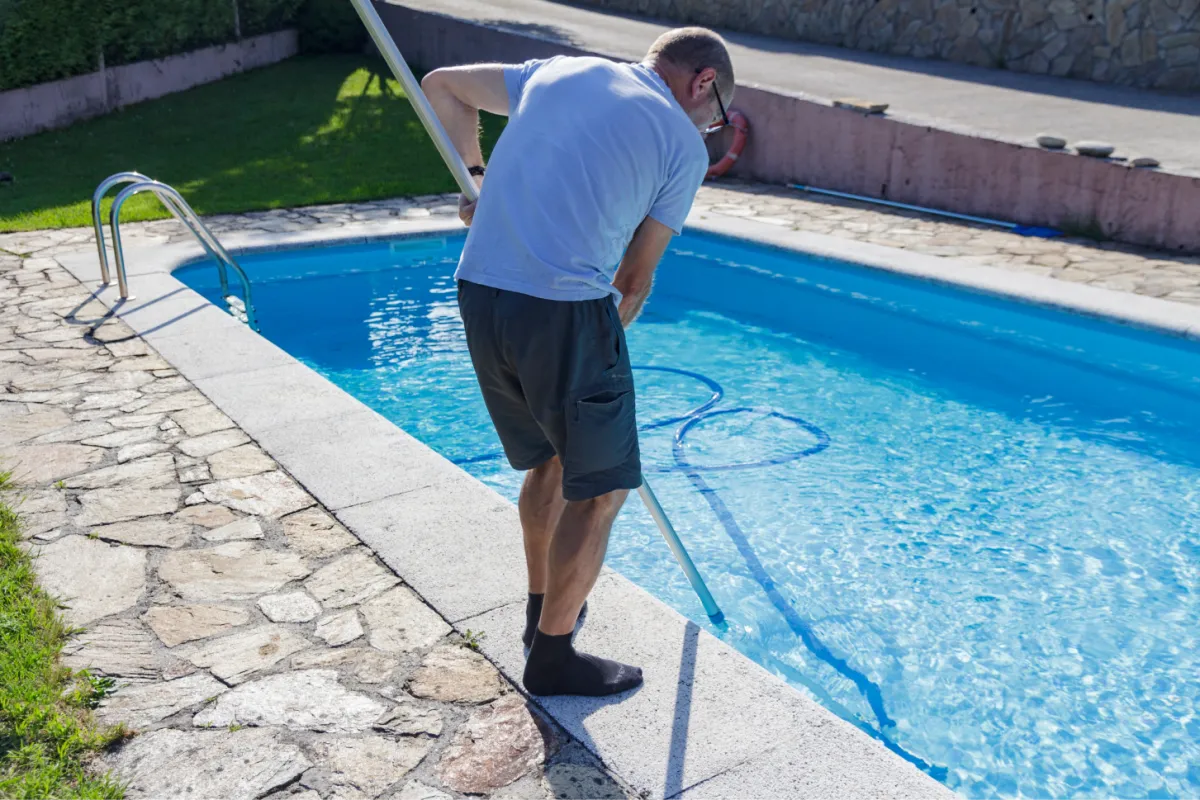
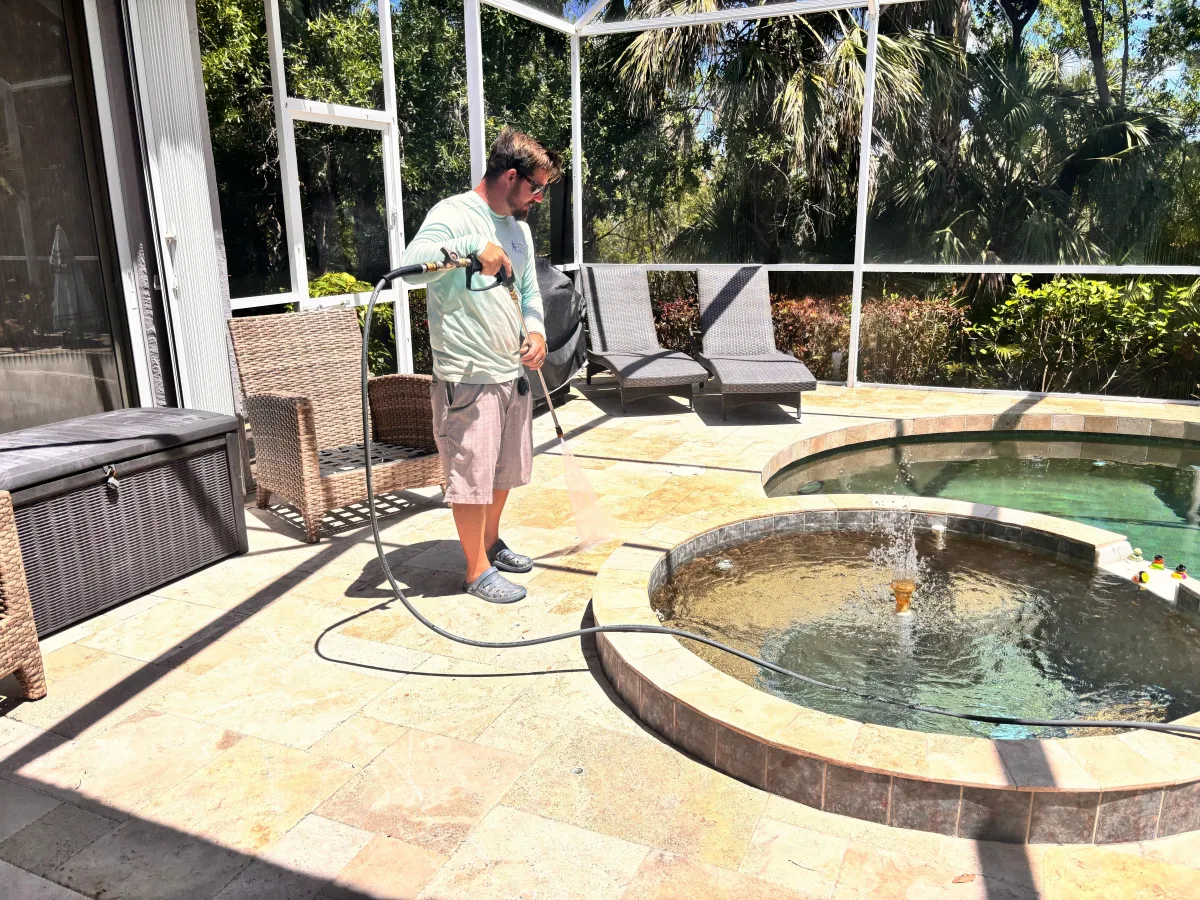

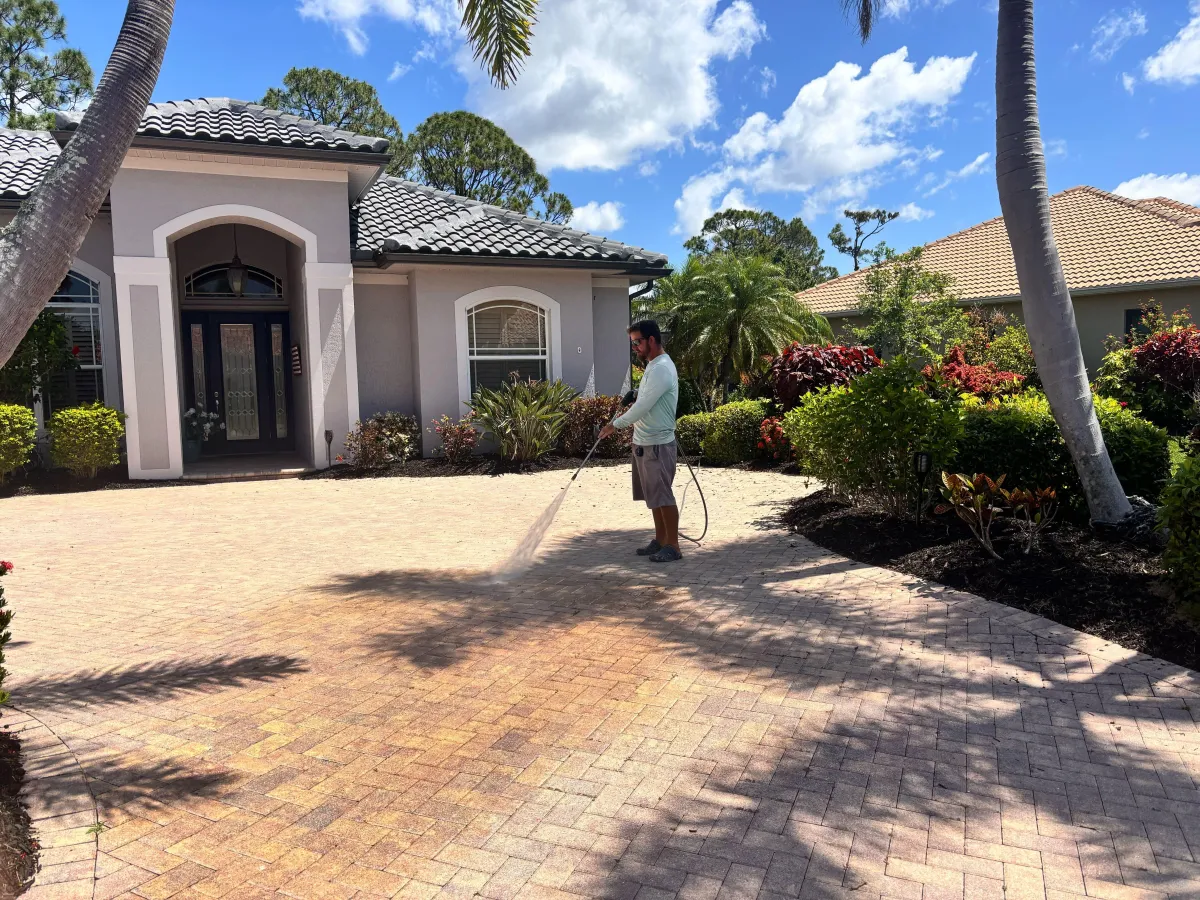

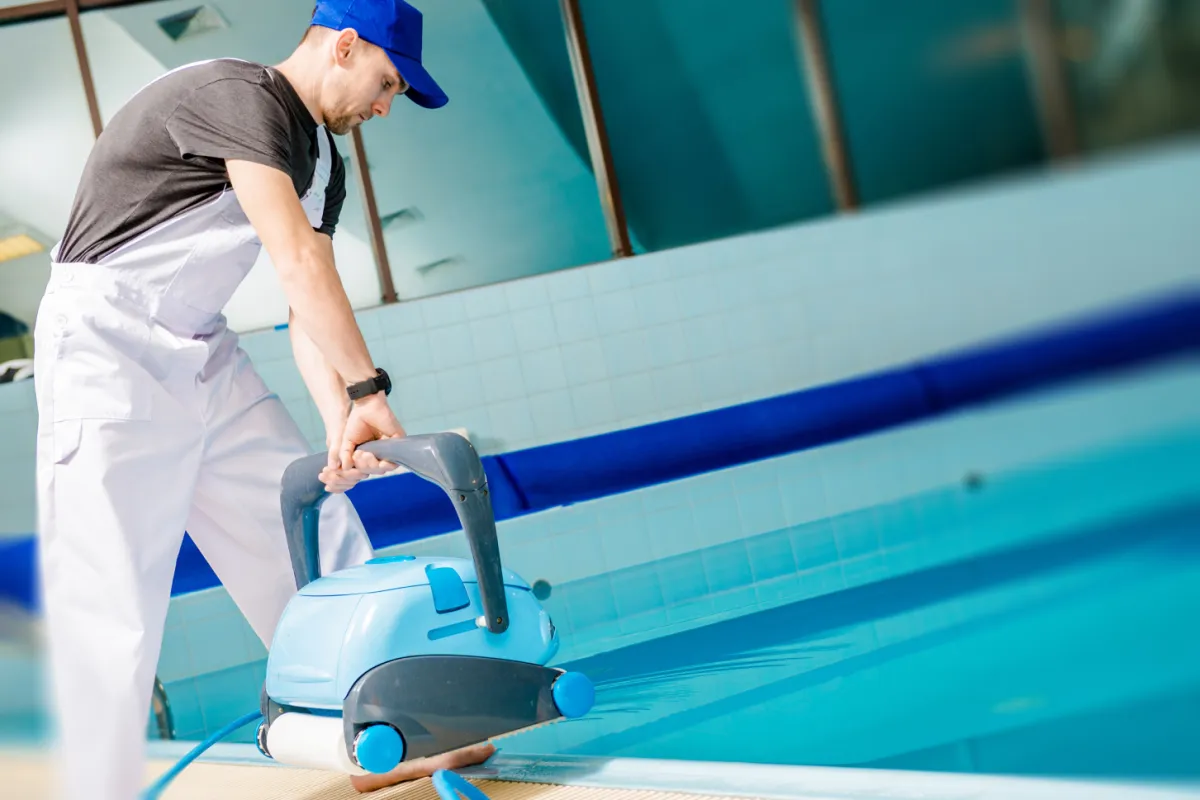
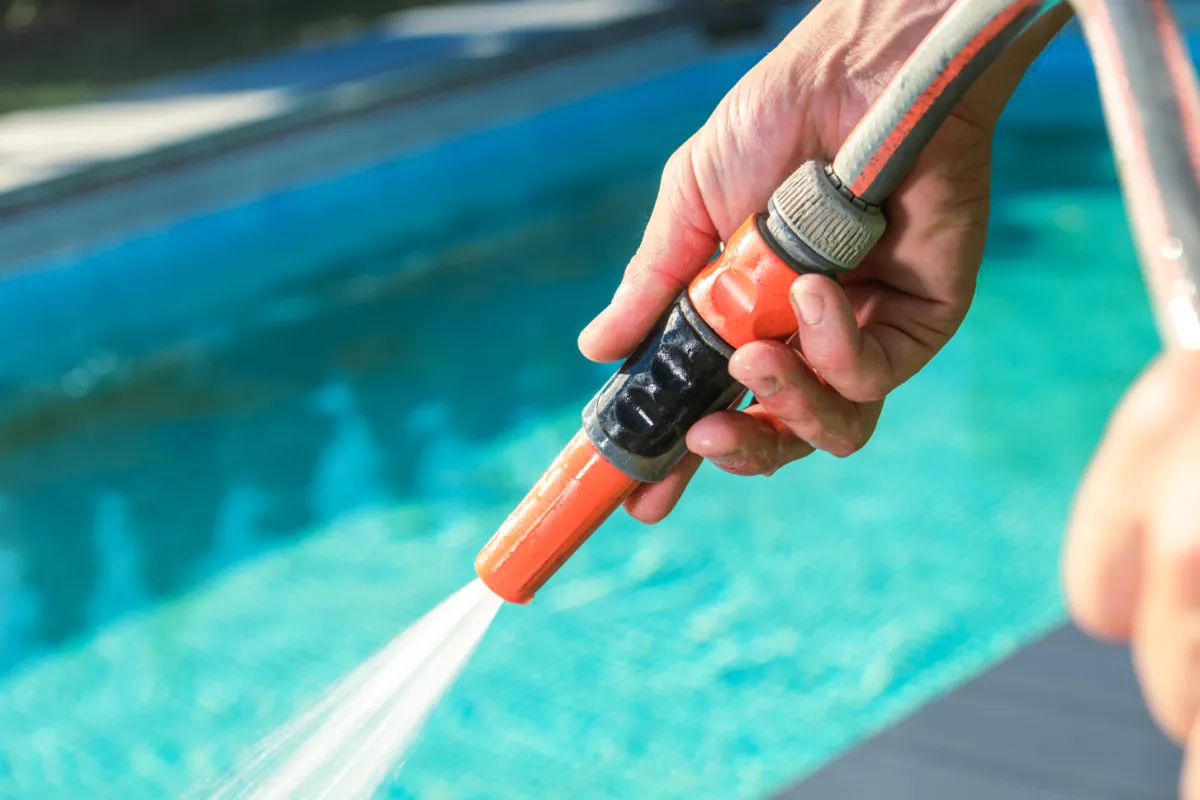
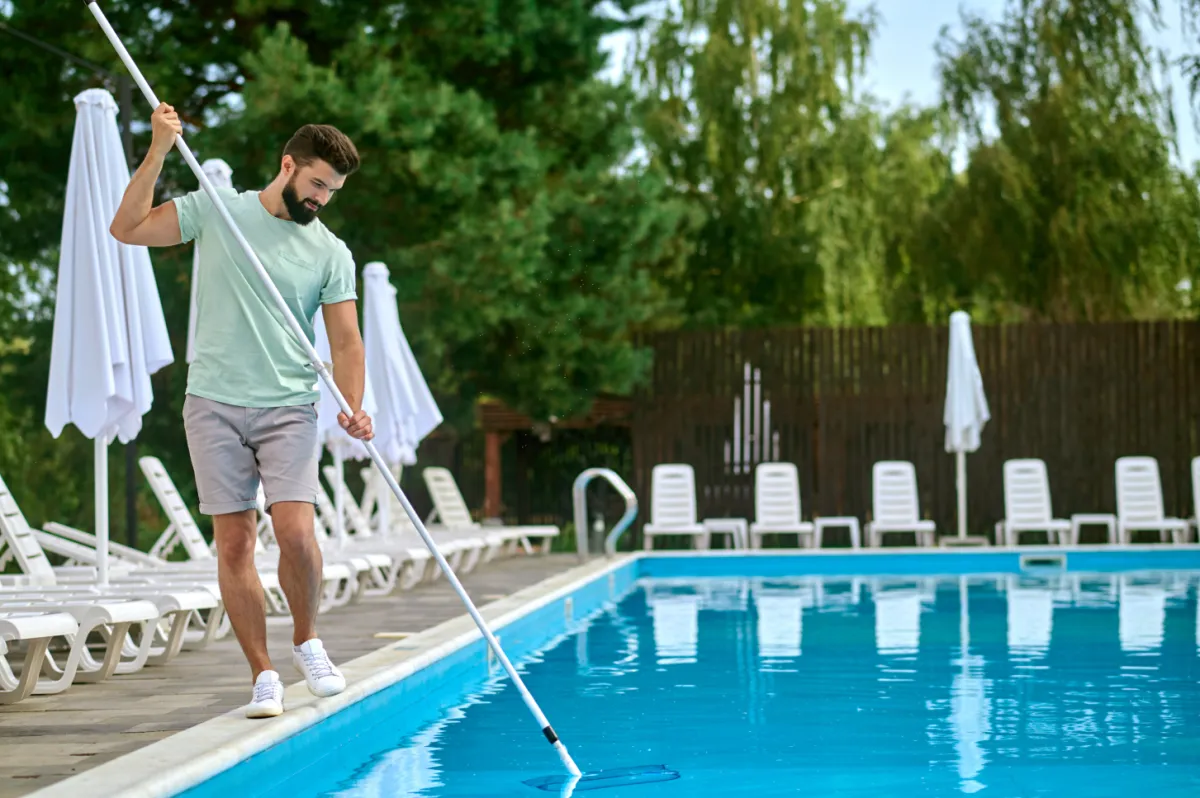
Frequently Asked Questions
Here are some helpful FAQ's to questions we are commonly asked.
Question 1: Why should I hire a pool cleaning services near me company?
A professional pool company ensures your pool stays clean, safe, and chemically balanced year-round. They handle routine maintenance, spot problems early, and help extend the life of your equipment—saving you time, hassle, and costly repairs.
Question 2: Why is it important to balance your pool’s chemicals?
Balanced pool water prevents algae growth, equipment corrosion, skin and eye irritation, and cloudy water. Proper chemical levels also improve sanitizer effectiveness, ensuring the pool stays clean and safe for swimmers.
Question 3: What’s the difference between saltwater pools and chlorine pools?
Saltwater pools use a salt chlorine generator to convert salt into chlorine, offering gentler water and lower long-term chemical costs. Traditional chlorine pools require manual addition of chlorine. Both systems sanitize water, but saltwater pools often feel softer and require less frequent chemical adjustments.
Question 4: What problems do phosphates cause in a pool?
Phosphates are nutrients that feed algae. High phosphate levels can trigger algae blooms, making water cloudy and green. While phosphates aren't harmful to swimmers, they lead to increased chlorine demand and more frequent cleanings.
Question 5: How do variable speed pool pumps work?
Variable speed pumps allow you to adjust the motor's speed, using only the energy needed for each task. They operate more efficiently, are quieter, and reduce energy bills—often paying for themselves in savings within a few years.
Question 6: What’s the difference between ocean water and saltwater pool levels?
Ocean water contains about 35,000 parts per million (ppm) of salt, while saltwater pools only have around 3,000–3,500 ppm. That means pool water is about one-tenth as salty as seawater—barely noticeable to most swimmers and far less corrosive.
Question 7: How often should my pool be serviced?
Most pools benefit from weekly service, which includes cleaning, chemical testing, equipment checks, and debris removal. More frequent attention may be needed during peak swimming season or after storms.
Question 8: What’s included in regular pool maintenance?
Typical maintenance includes skimming the surface, vacuuming, brushing walls, emptying skimmer and pump baskets, testing and adjusting chemicals, and inspecting equipment for wear or leaks.
Question 9: Do I need to close my pool in the winter?
In colder climates, closing (or winterizing) your pool helps protect plumbing and equipment from freezing damage. In warmer areas like Florida, pools often stay open year-round, but may still benefit from reduced usage care and inspections.
Question 10: Can I switch my chlorine pool to a saltwater system?
Yes. Converting to saltwater involves installing a salt chlorine generator and adding pool-grade salt. It's a straightforward process and often results in smoother-feeling water and simplified chemical maintenance.

